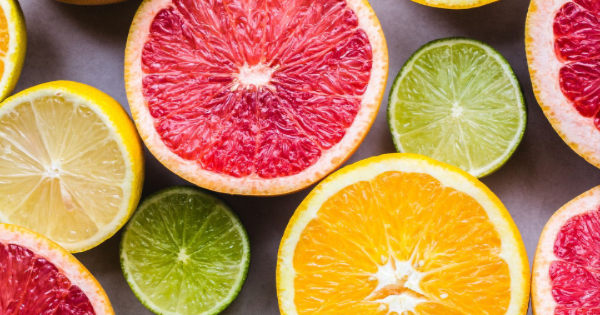
While we all know that eating fruits and vegetables is an essential part of a healthy diet, it’s less known that these acidic foods can also damage your teeth. It seems strange to limit or monitor your fruit intake, but too many acidic foods can actually damage your oral health and lead to complications with repeated exposure.
In the fight to prevent tooth erosion and sensitivity, what we eat and how we eat it needs to be monitored for a healthy smile. Here is why we should work to better monitor our acid intake and how we can promote healthier oral habits for the long term.
Even though it’s recommended that we eat a variety of citrus fruits and vegetables, acidic foods and beverages can have harmful side effects on our oral health. This is because acidic substances have a lower pH than the pH in our mouth. As such, introducing these harmful acids can weaken our tooth enamel, opening up the door for other complications. This is why your licensed dentist recommends that you wait 30 minutes after a meal before you brush your teeth. Otherwise, you might damage your teeth from the abrasion of the bristles. Once 30 minutes have passed, it’s vital that you clean your teeth to prevent acid and plaque build-up from occurring.
With prolonged acidic exposure, you might suffer from higher levels of tooth sensitivity and tooth decay. While visiting a licensed dentist might mitigate some of the damage caused by acids, repeated exposure will alter the environment of your mouth. This will prevent your mouth from remineralizing your tooth enamel, leading to further complications.
But we cannot stop eating acidic foods altogether. Acidic fruits and vegetables often offer high levels of vitamin C, making them powerhouses for bodily health. After all, it’s thanks to vitamin C that we’re able to promote our gum health and prevent harmful conditions like scurvy. Luckily, there are ways to mitigate the harmful effects of acids. Let’s talk about some of the most acidic foods and beverages we ingest and if there are any great alternatives.
As mentioned earlier, acidic foods and beverages have lower pH levels on the pH scale. The pH scale runs from zero to 14, with zero being the most acidic and 14 being the most alkaline. While ingesting foods with both low pH values and high pH values aren’t great for your oral health, it’s more common that our fruits and vegetables have a low pH value.
One of the most acidic fruits you can eat are lemons and limes. On the pH scale, these fruits have a level of only 2.00 – 2.80, according to the FDA. When you think about it, it makes sense why this acidic food is so sour. However, these fruits are followed closely by more commonly ingested fruits like cranberries, plums, and grapes with an average pH of about three.
By comparison, most coffees only have a pH of around four. While we’re constantly told to limit our acidic coffee intake by licensed dentists, most of us wouldn’t think twice about eating an entire bowl of juicy grapes.
While you don’t have to eliminate these foods from your diet, it is recommended that you limit their intake. Luckily, there are a number of fruits and vegetables that are less acidic and offer just as many benefits as these acidic fruits. For example, cantaloupe is far more basic with a pH of around 6.5 and it’s actually one of the best sources of vitamin C available. Bananas and watermelon are two other options that can supplement your vitamin C intake.
Regardless, you should also practice healthy oral care habits as well. This includes rinsing your mouth with water after a meal and brushing your teeth after 30 minutes have passed. Along with these habits, you should try to cut down your intake of low-pH foods and drinks to a few times each week. This will ensure you’re not exposing your teeth — or your children’s teeth — to harsh acids too frequently.
For the best advice regarding acidic foods, don’t hesitate to reach out to the licensed dentist you can trust: at Smilez Pediatric Dental Group, we can help you establish a healthy oral care routine that works for your lifestyle.